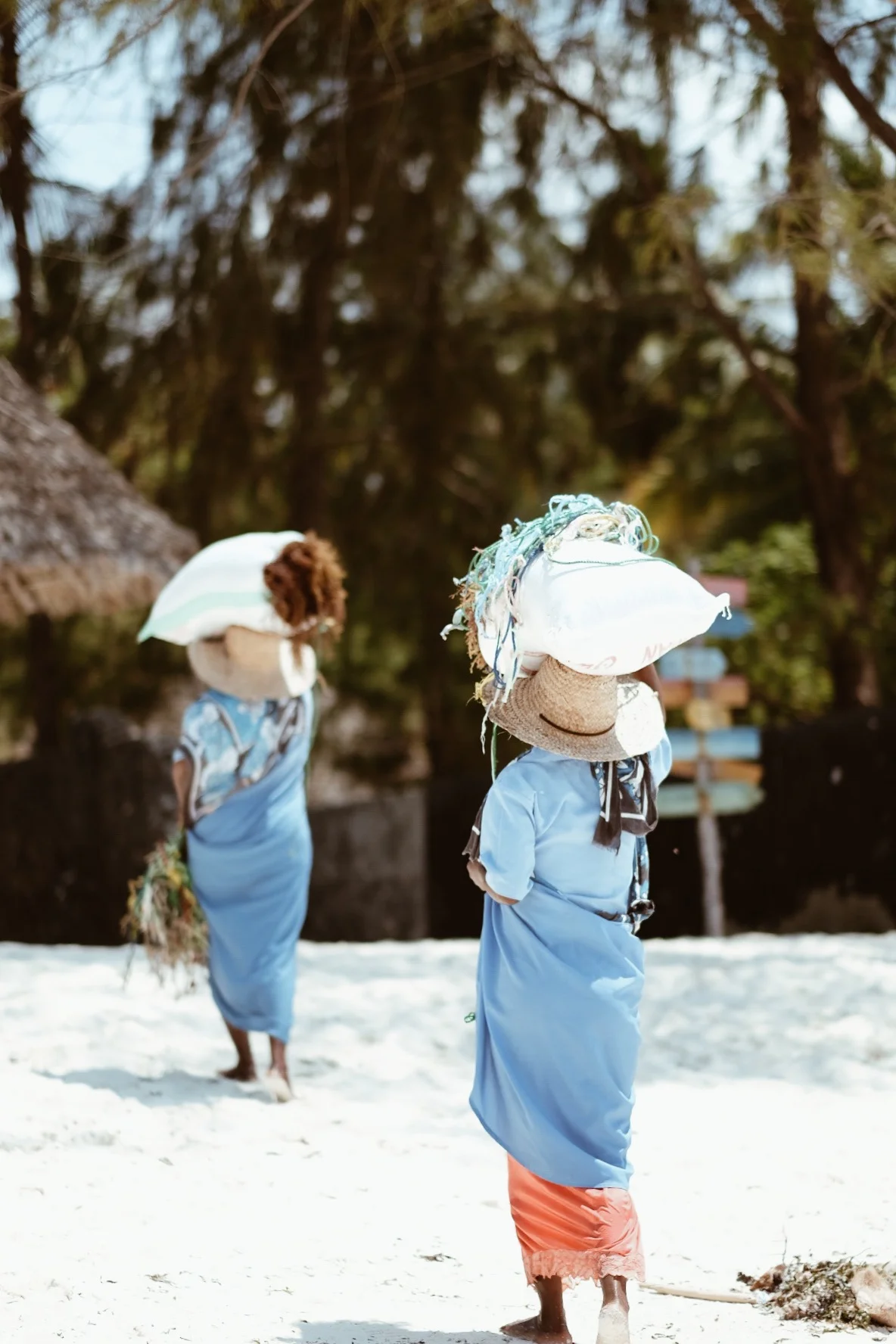











In Zanzibar, seaweed is harvested mainly by women and exported world wide and used mostly in the cosmetics industry, where it is used as a thickening agent.
We wade through the low tide in Paje to the farm, wooden posts driven into the sand with seaweed strung on them to prevent them floating away. Seaweed grows underwater for roughly 45 days and when it reaches one kilogram, it is picked and dried in the sun. After the seaweed dries, it is then transformed into organic soaps, scrubs, body butters etc.
Climate change, however, threatens seaweed harvests yearly. Since 2011, farmers have experienced serious problems of die-off and diseases resulting into decreased production mainly caused by a severe case of ice-ice disease that occurs during extremely high water temperature in the hot/dry season.
Fisheries and aquaculture play a huge role in livelihood and food security in Zanzibar. Seaweed alone contributes 7.6 per cent of Zanzibar’s total GDP. With average temperatures on the island projected to increase by as much as 2º C by 2050, the 23,000 seaweed farmers who rely on this plant are in danger of losing their livelihoods in the next few years.